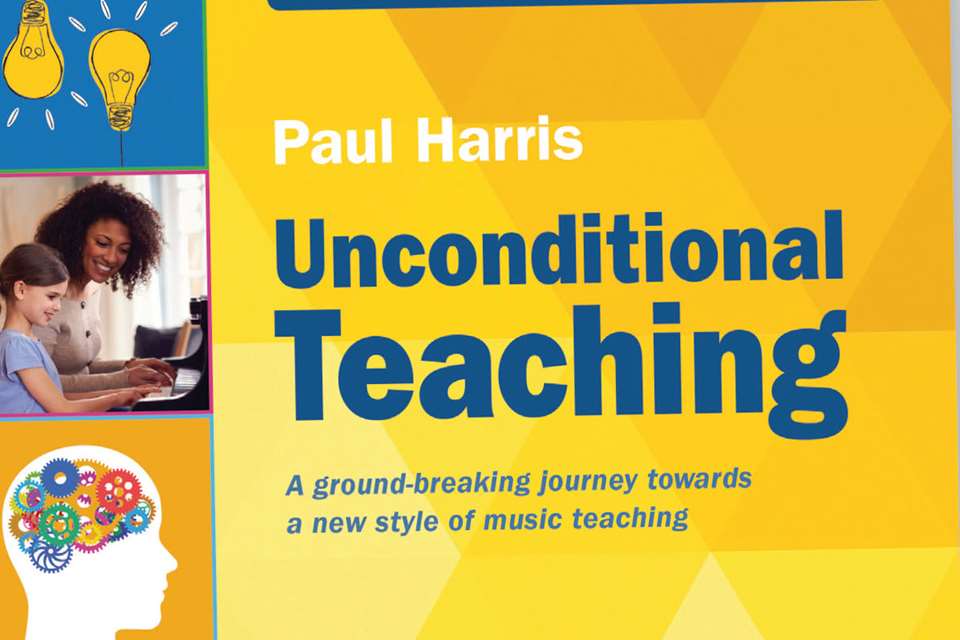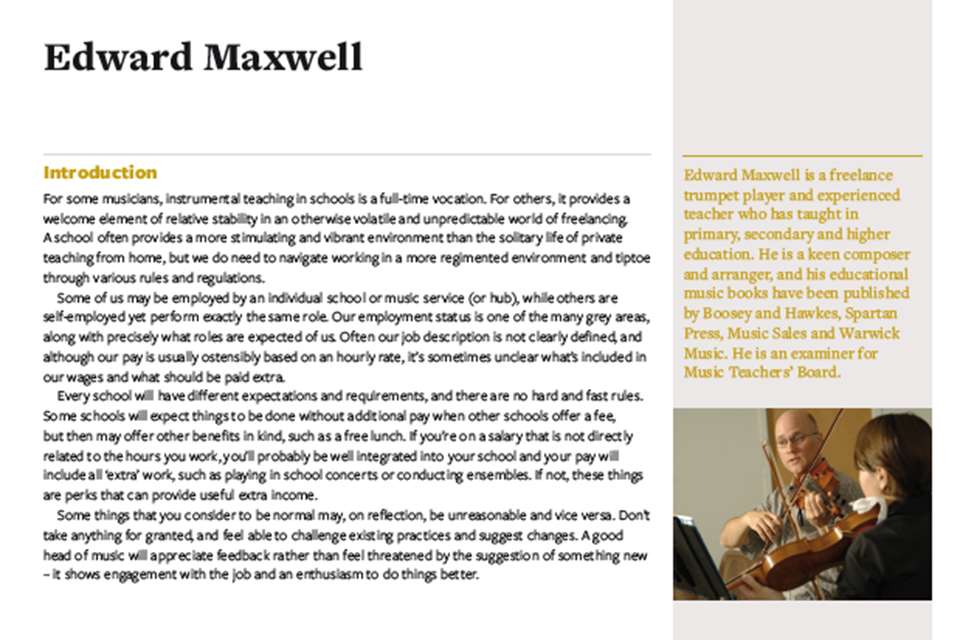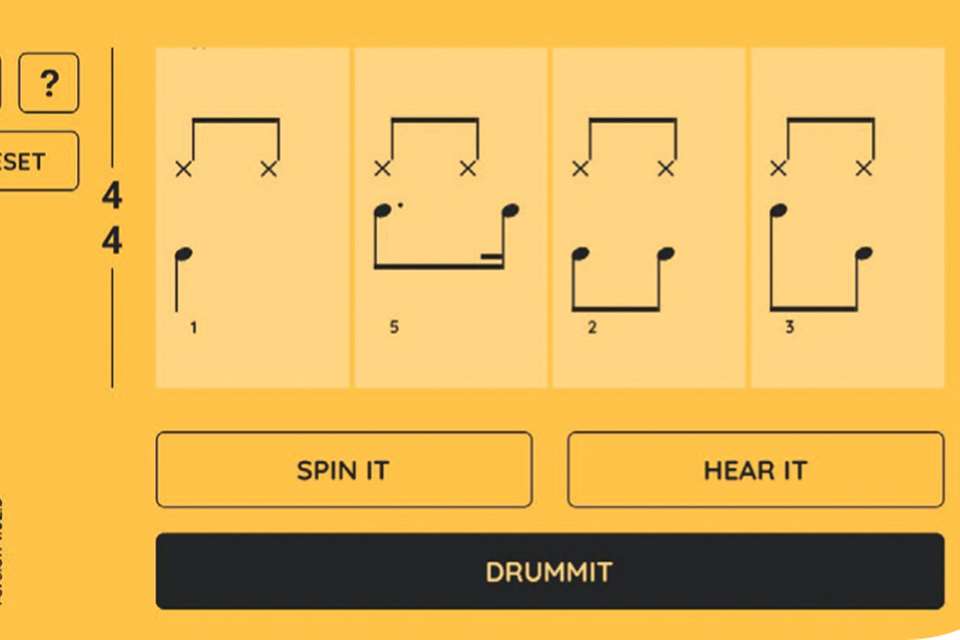Paul Harris interview: On no condition
Claire Roberts
Tuesday, March 1, 2022
On the publication of his new book 'Unconditional Teaching', Claire Roberts meets Paul Harris to learn more about the concepts explored within.
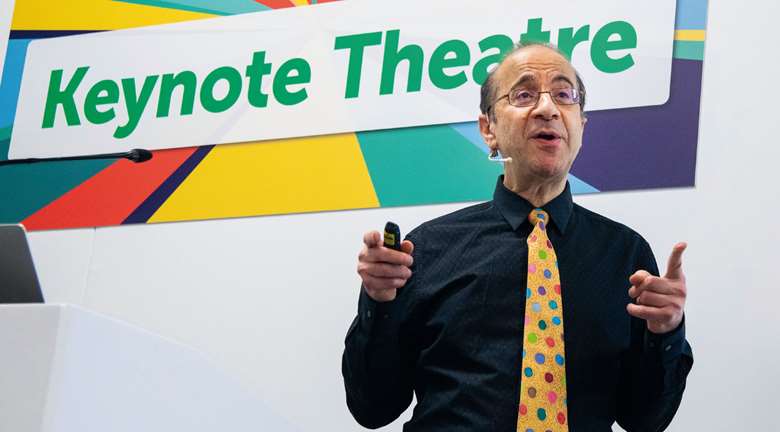
Paul Harris, one of the country's leading music educationalists, has written a new book exploring the ‘conditions’ that may affect teachers and learners across all ages and instruments. Unconditional Teaching is a guide for teachers that suggests a new way forward, a new mindset, in order to create a more unconditional environment in which to live and work. ‘The book takes a look at the circumstances in which we teach, to ensure that at all times we and our pupils are in a positive frame of mind,’ says Harris.
‘It feels to me like positivity is more important than ever at a time when those of us who care about arts and culture are having to fight our corner. We can try to review the barriers, or “conditions”, that may cause negativity or frustration during lessons, in order to always have a sense of positivity about what we're doing,’ he adds.
Having written over 600 publications on various topics within music education, Harris describes this latest book as an extension of his ‘simultaneous learning’ approach: ‘Simultaneous learning is all about setting up each activity carefully so that the pupil can achieve the whole time, and a lesson is a constant series of progression. If teaching involves a pupil playing a piece, and then the teacher corrects their mistakes, a lot of students might find this negative or frustrating and feel they can't do it – or ultimately give up.’
He goes on: ‘The idea is that the simultaneous learning approach is pro-active rather than re-active. By the end of a lesson, a pupil may have carried out 20 or 30 activities, and each time has achieved something because these activities have been set up carefully. There's also a focus on “ingredients”: exploring the ingredients or features of a piece or song and making the connections between them, such as key, scale, rhythm, or technique. That's simultaneous learning in a very, very condensed nutshell!’
Developing self-awareness
Harris has previously laid out these principles in Simultaneous Learning: The Definitive Guide, which was shortlisted for the Best Print Resource Award at the 2015 Music Teacher Awards for Excellence (now Music & Drama Education Awards). Where Unconditional Teaching takes over from this, he explains, is in considering the environment of lessons – both in practical and psychological terms. In the initial chapters, Harris lists and explains some examples of conditions that could affect our teaching: the room in which we teach, the attentiveness, interest or diligence of a student, whether or not the student has remembered their books.
He also considers certain ‘hidden conditions’: unconscious bias, or beliefs we may have that are less obvious than our environment, such as giving more care or attention to students if we perceive them to possess certain musical qualities in their playing, or letting our egos influence how and what we teach. The first step in striving to teach unconditionally, according to Harris, is to acknowledge what our conditions are as teachers, so that we can try to manage or even eliminate conditions which prevent a positive mindset during lessons. But how can we go about acknowledging these conditions when they are deeply ingrained, or changing our mindset to free ourselves of certain prerequisites?
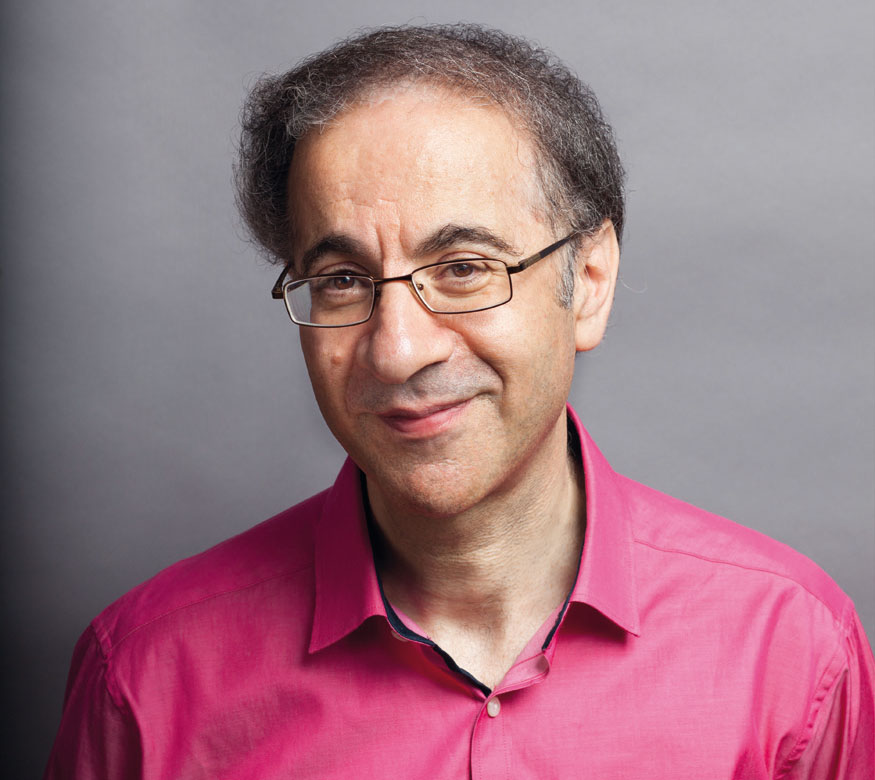
© FABER MUSIC
‘What we have to try to do is bring our unconscious biases into our conscious,’ says Harris. ‘Once you begin to be more self-aware, you might look back on a lesson and how you reacted in a particular moment with a student. You can delve a little deeper and think, “why did I react in that way? Is it because I believe x, y or z, and did that shape my reaction?” You then have a decision to make: you can think, I'm ok with that, or, alternatively, if I tried not to think like that, could the outcome be better?’
Harris acknowledges that it might not always be easy to become more self-aware, or to re-think our reactions, but feels that educators have highly responsible roles that demand pro-active thought and reflection: ‘I would love for all teachers to put aside five minutes at the end of a teaching day for a bit of reflection, thinking about what went well and why, and vice versa. I would love for teachers to take that responsibility – if a pupil doesn't understand something, thinking about what other pathways might lead to a different outcome, or what other connections can be made to ensure that learning is happening.’
Deeper reflection
Since he was a student himself, studying clarinet at the Royal Academy of Music, Harris has fostered a love of teaching, and has spent many years thinking and writing about music education: ‘I found it totally absorbing and fascinating. My teacher John Davies was wonderful and could tell that I really enjoyed teaching.’ Following his studies at the Academy, Harris went on to graduate with a masters in Music Education at the University of London. His teaching guides published by Faber include The Virtuoso Teacher (2012), Teaching Beginners (2008), and Improve Your Teaching! (2007), and his website includes blog posts on topics such as sight reading or practice.
This latest book, Unconditional Teaching, is testament to his own wealth of experience as a teacher. He first introduced the idea of striving to teach ‘unconditionally’ at the London Music & Drama Education Expo in 2020, after which he was encouraged to write a book on the topic. Harris explains that the notion of conditions and trying to manage them was something he had been thinking about deeply following his diagnosis of cancer in 2018: ‘I have always been healthy, so it was a real surprise to me that I was suddenly ill. I spent a lot of time thinking about how I could deal with this, and the real overriding thought I had was how could I be more unconditional, managing the conditions that were preventing me from going forward, and doing so in a positive way? We are all wired to be conditional as human beings; we can't help it, but I began to think about how this could actually get in the way – particularly for teachers.’
Unconditional Teaching is an analysis not only of the conditions or requirements that a teacher might have in their mind, but also those common to parents or learners of all ages. For example: ‘I will work harder if I can hear/see progress being made.’ Harris devised questionnaires for teachers and students of group and individual lessons and received a huge number of responses: ‘In chapter nine, I list some of the responses from students, and I was fascinated,’ he says. ‘Younger students are so incredibly aware of everything – they are aware of how they are being taught and when they are learning well, or when they aren't learning so well as a result of how something is being taught.’
Unconditional state of mind
For this reason, Harris reiterates just how important he feels it is that the unconditional teacher ‘takes responsibility’. ‘In my humble opinion,’ says Harris, ‘teaching is a hugely important job. Our younger students are the future, and, in a sense, we are shaping the future through the way in which we teach. If we create a kind of learning wherein learners don't feel frustrated or that they are not good enough, perhaps the students would feel more positive, more kind, and more responsible as they grow up.
‘In our own way, we as teachers are continually dropping little pebbles into the lake, and those ripples are then moving outwards and affecting other people. If we do our work in a compassionate and empathetic manner, we can contribute to making the world a better place in our own small way.’
The final passages of the book note the importance of being kind to oneself too. Written in the compassionate and empathetic tone that is the essence of Harris’ work as an educator, he states that teachers must take care to remember: ‘We are human. We must allow for the fact that we don't always have limitless energy and our imaginations might not always be firing on all cylinders. It's important that we accept these limitations if they occur, and not allow them to cause us stress.’ Leading by example with his kind words and positivity, Harris considers how, through increasing our awareness, we can all strive towards a state of mind that is unconditional.


